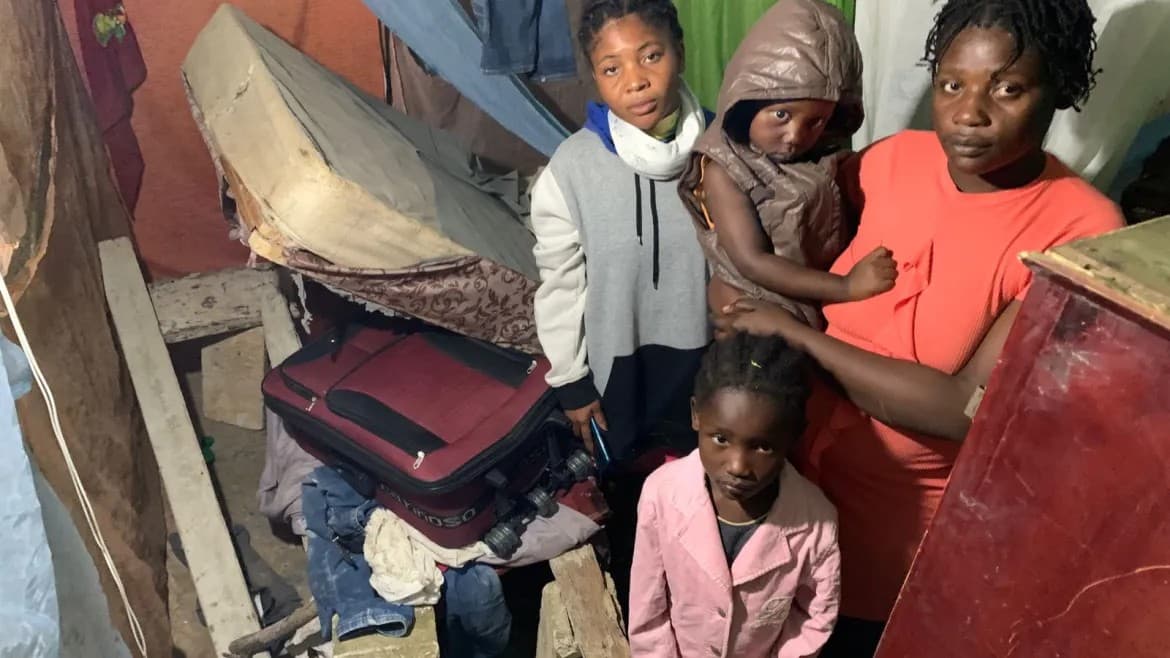SÃO PAULO, Brazil – Amid a surge in the immigration flux from Haiti to the neighboring Dominican Republic, racism and xenophobia against Haitians have been on the rise.
Operations carried out by the military have been resulting in serious human rights violations, according to dozens of Church groups and civic organizations in a letter released on Mar. 20.
The statement described an abusive operation carried out on Mar. 15 by immigration agents and military officers in the Eastern province of El Seibo. Several houses in the Villa Guerrero neighborhood, a rural area in the city of Santa Cruz de El Seibo, were stormed late at night by armed officials.
The agents broke doors and grabbed men, women, and children identified by them as Haitians. Dozens of people were arrested, put in buses and taken away by the military, who announced they were going to be deported. Pregnant women were included in the group.
According to the document – co-signed by the Dominican order, the Jesuit Network with Migrants, the Archdiocese of Santo Domingo’s Pastoral of Human Mobility, the National Conference of Religious and dozens of nongovernmental organizations and Church groups from other countries – that was not the first time that government officials violated the human rights of Haitian immigrants.
The letter said that dozens of people were “kidnapped” late at night to be expelled from the Dominican Republic. The ones who were not taken away have been severely traumatized and left their homes.
The agents used physical and verbal violence and stole money, cellphones, and other goods owned by the local families, the document added.
“It is evident that there is a violation of the fundamental rights of those people, who are being arrested to be expelled from the country without the conclusion of the due administrative process and, even worse, are being subjected to violence and mistreatment, which generates an atmosphere of fear and vulnerability,” the signatories say.
That night, members of Catholic organizations were able to follow the bus and managed to release two pregnant women and two children, the letter described.
“It is unacceptable that discriminatory and violent practices are perpetuated in the 21st century against groups of migrants or of foreign descent. The lack of prior administrative process to individually evaluate each case and guarantee respect for the human rights of these people is a flagrant violation of the basic principles of justice and equity,” the document reads.
The signatories concluded the statement by demanding the government and President Luis Abinader to immediately halt such practices.
According to Dominican Father Miguel Gullón, the crisis in Haiti, intensified over the past couple of years with the growing power of the criminal gangs that took control over large areas of Port-au-Prince, has been forcing many to migrate to the Dominican Republic.
“People have been trying to escape for security reasons. We want their rights and their dignity to be respected here,” Gullón told Crux.
While the Haitians’ workforce is valued in the neighboring country – where they find jobs especially in building and in farms – many of them are being exploited by their employers, Gullón added.
“They have been abused by international sugar companies. They have to work all day long and are not adequately paid,” he said.
Scalabrinian Sister Eugenia Vásquez, a missionary of Fundación Ascala (Scalabrinian Association at the Service of Human Mobility), which also signed the letter, said that President Abinader’s administration assumed an “anti-Haitian policy” since he took office.
“He has been taking several measures to curtail immigration, like the construction of a wall on the border and the intensification of deportations,” Vásquez told Crux.
Pregnant women have been constantly sent out of the Dominican Republic, she added, given that the government claims that they impact the healthcare system.
“That’s not true. Those women have to pay in order to be taken care of,” Vásquez said.
With the growing repression, many Haitian women have been giving birth at home, something that can be very risky.
The influx of Haitians has been constant, with a special growth since last year. Many Haitian workers have also been leaving the cities and moving to the countryside in order to avoid deportation, Vásquez said.
Haitians face a double prejudice in the Dominican Republic as immigrants and as Black people. Even Black Dominicans complain of being inspected at times by immigrant agents, Vásquez added.
“While Venezuelans, also a major immigrant group, could obtain documents and integrate, Haitians didn’t have the same opportunity,” she said.
That situation has been equally impacting Haitian priests and nuns, who frequently face problems with their papers. Catholic groups, especially congregations, have been intensifying their actions to support the Haitian community, Vásquez said.
Haiti has been going through its worst security crisis in several years since President Jovenel Moïse was killed in 2021. One of the poorest countries in the world, Haiti had been since then ruled by an interim government led by Prime Minister Ariel Henry, who resigned last week.
Haitians hope that a peaceforce to be deployed by Kenya will help the authorities to regain control over Port-au-Prince and other cities taken over by criminals. Many also think that a new administration, elected by popular vote, can collaborate to reorganize the country.
Until then, the influx of Haitians in the Dominican Republic will continue to be strong. Church activists like Sister Eugenia Sánchez hope that the Dominican government can change its stance on immigrants.
“The Dominican Republic was elected to be a member of the United Nations Human Rights Council last year. That’s a great contradiction, considering what’s happening to Haitians nowadays,” she said.











